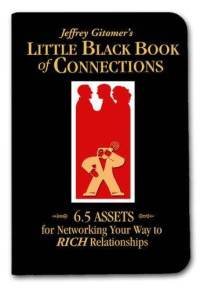Ten Serious Career Networking Myths & Mistakes
Human connection and communication make the world go ’round – especially in business and the corporate environment. It’s impossible to have a successful business and career without the help and support of your coworkers, clients and community. Networking is an essential activity but it must be done conscientiously and with skill in order to be effective. Unfortunately, all too often people make the mistake of thinking networking isn’t worth their while or even worse, network with only their own interests in mind. The following ten statements are some of the most common misconceptions about networking and why they are so damaging. Do any of these sound familiar?
- “I don’t like to make contacts.” Making contacts is “the conscious and voluntary activity of establishing and maintaining genuine and long-term relationships with persons who we appreciate and respect.” It’s a part of living and interacting within a community and we do it every day!
- “Contacts are useful only to find work.” It’s a fact that 9 out of 10 jobs are landed, whether directly or indirectly, through contacts. But networking is about making those relationships worthwhile, renewing the bond and mutually redefining our identity, image and reputation with each interaction!
- “I network only when it’s convenient for me.” This is tantamount to saying “I remember you only when I need you.” Networking solely for your own benefit is self-centered and may be even manipulative. It’s the perfect way to destroy a relationship. People can smell manipulation miles away!
- “I’m too busy.” Although nothing beats face-to-face interactions to build relationships of trust and affection, digital alternatives are an effective way to prevent us from vanishing from the face of the earth, a deadly sin in the professional world.
- “It distracts me from serious work.” Networking takes time and energy but it is key to employability: it is the “sales force” of our image and reputation. Without contacts, our accomplishments and progress remain unknown and our personal brand ends up being worthless.
- “I don’t like to go to social events.” The professional world also provides alternatives to interact with new and diverse people, and expand your thinking patterns. Hanging out with the same people every day shows disregard for others and we may end up left behind.
- “You didn’t hear this from me but…” Using the contact network to harm reputations or to gossip destroys our credibility and our own reputation as serious or loyal individuals, even if we only become involved by listening. Is it worth it? You never know when gossip will come back to haunt you.
- “I can only afford to build relationships with important contacts.” It’s a serious mistake to think that only high-level contacts are valuable and look down on others or be arrogant. All people are worthy regardless of what they work on. There’s no such thing as a small contact!
- “I have very few contacts.” As adults, we usually have 500 to 1,000 friends and acquaintances between school and college classmates, work colleagues and former colleagues, people we know from our club, gym, the neighborhood, church, from our business, and the relatives and acquaintances of all of the above. Suppliers and clients, former suppliers and clients. Parents of our children’s friends… Make your list and protect it – ideally, in the cloud.
- “I must impress my contacts.” The essence of every good relationship is trust, not impressing others. Acting appropriately, and being genuinely warm and authentic opens the doors to trust and credibility. Being polite to everyone and listening to them with a real interest benefits your personal and professional image and reputation. The secret is to inspire others and always leave something valuable for them in every interaction!
Networking isn’t so much about making as many connections as possible, it’s about strengthening the connections you have, ensuring they become more meaningful and authentic. When you ditch the myths and avoid the above networking mistakes, not only will the connections your forge flourish but so will your personal brand and your career.
About the Author


 Jeffrey Gitomer is the author of The Sales Bible, Customer Satisfaction is Worthless Customer Loyalty is Priceless, The Little Red Book of Selling, The Little Red Book of Sales Answers, The Little Black Book of Connections, The Little Gold Book of YES! Attitude, The Little Green Book of Getting Your Way, The Little Platinum Book of Cha-Ching, The Little Teal Book of Trust, The Little Book of Leadership, and Social BOOM! His website,
Jeffrey Gitomer is the author of The Sales Bible, Customer Satisfaction is Worthless Customer Loyalty is Priceless, The Little Red Book of Selling, The Little Red Book of Sales Answers, The Little Black Book of Connections, The Little Gold Book of YES! Attitude, The Little Green Book of Getting Your Way, The Little Platinum Book of Cha-Ching, The Little Teal Book of Trust, The Little Book of Leadership, and Social BOOM! His website, 